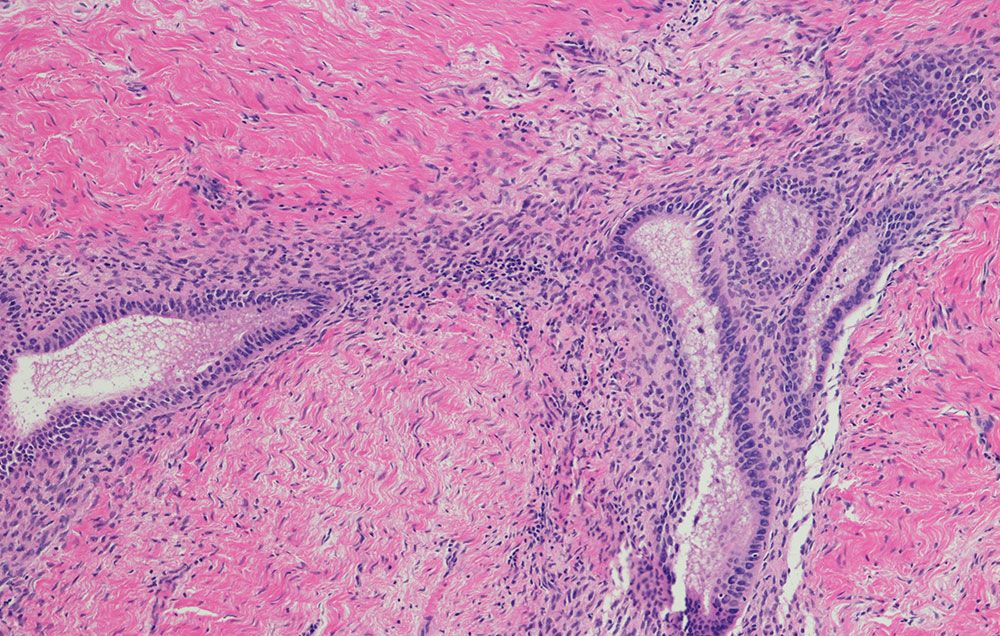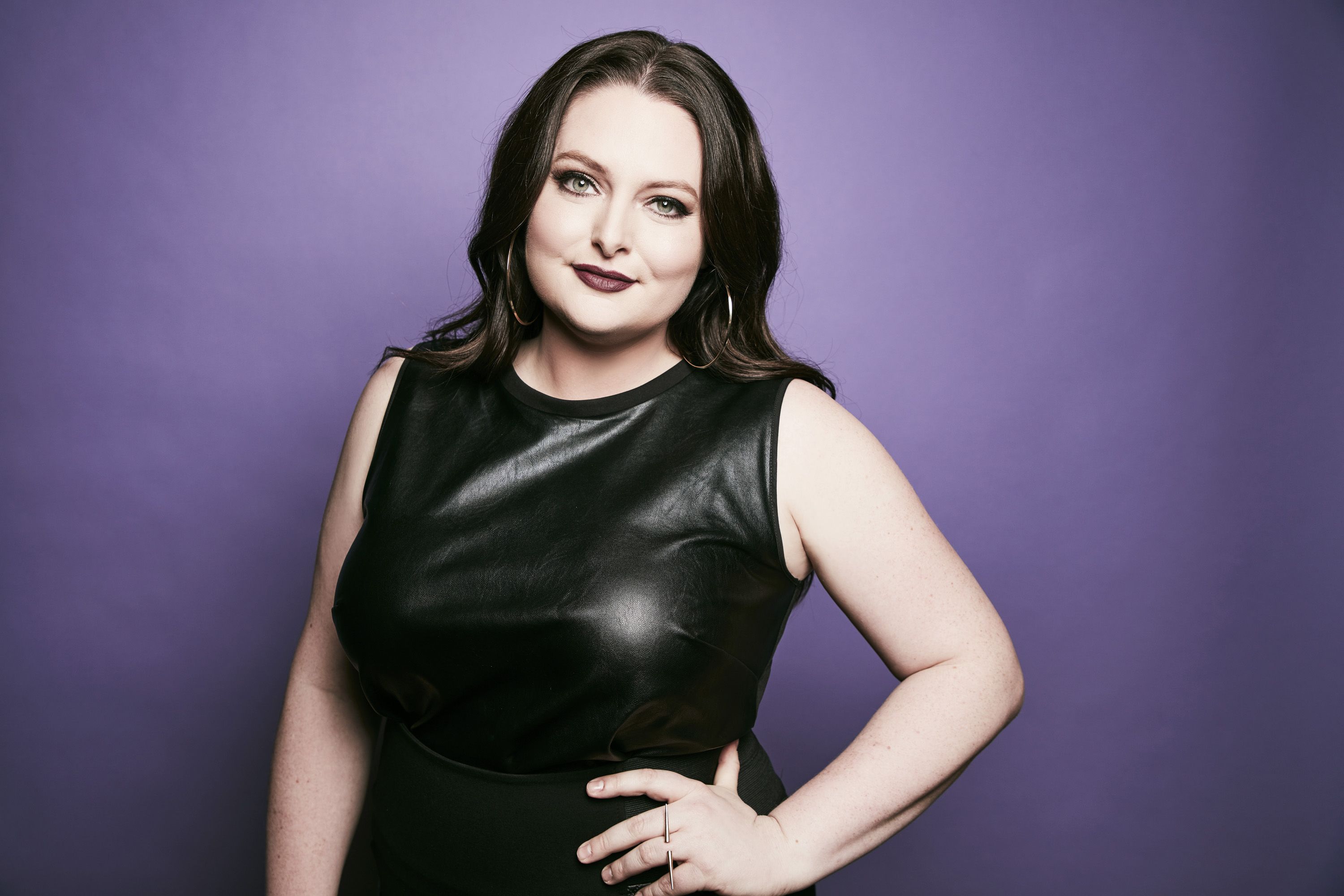Trying for a baby can feel like a full-time job. And sometimes, no matter how many tricks you try (tracking your cycle religiously, ovulation strips, zeroing in on your nutrition), you still might find that you’re not getting pregnant. The thing is, there are so many health- and lifestyle-related factors that go into getting pregnant: your ovulation schedule, your partner’s fertility, underlying medical conditions like polycystic ovary syndrome (PCOS) or autoimmune diseases, or even the medications you’re taking.
Whether you’ve been trying for a while and are feeling stuck, or you’re about to start trying, knowing what can impact your ability to get pregnant is important. And in many cases, there’s a *lot* you can do to boost your fertility. Here are the major reasons you’re not getting pregnant right away, and how to improve your chances, according to an ob-gyn and a reproductive endocrinologist.
1. Your cycle and ovulation might be irregular.
Getting pregnant relies heavily on having a regular menstrual cycle, about every 21 to 35 days. During the ovulation portion of your monthly cycle, the ovary releases an egg that can potentially be fertilized. But the window is short for fertilization, and you have to actually ovulate to be able to get pregnant. “That egg will survive up to 24 hours before the ‘conception window’ closes until the next cycle,” explains Meike Uhler, MD, a board-certified reproductive endocrinologist at Fertility Centers of Illinois.
There are a few underlying reasons your cycle, and therefore your ovulation, might be irregular. They could be out of your control, like thyroid issues, PCOS, stress, or being overweight or underweight. You might be able to get your ovulation back on track with a healthy diet full of fruits, vegetables, whole grains, and healthy fats (think salmon and avocado), as well as exercising regularly and cutting back on drinking both alcohol and excess caffeine, Dr. Uhler says. And if you can keep stress in check and implement regular self-care strategies, do it.
2. Your age could be a factor.
This probably isn’t news to anyone, but the younger you are, the easier it is to get pregnant. “While there isn’t a uniform age where all women will begin to experience fertility issues, egg supply and quality tend to decline more rapidly after age 35,” Dr. Uhler says.
You can’t really do anything to change how old you are when the time is right for you to have a baby. The only thing you can do is reconsider exactly how you get pregnant, if you’re having trouble doing so at your age, and you’ve been trying for about a year already. Dr. Uhler suggests considering having a convo with a trusted health-care provider about egg or embryo freezing, or looking into IVF.
3. You’re not at a healthy weight.
Being either overweight or underweight can affect your ability to conceive, because it can change your ovulation patterns. PCOS (more on that later) is commonly associated with obesity because it affects the body’s ability to regulate insulin. It also contributes to irregular ovulation. Low body weight can lead to irregularity in your menstrual cycles too.
“It’s important to work towards a healthy weight,” Dr. Uhler says. “For people who are obese or overweight, losing as little as 5 to 10 percent of their weight can make a big difference in their ability to get pregnant,” she adds.
4. Your partner’s infertility could be hurting your chances.
Men can struggle with fertility due to hormonal or genetic reasons, or environmental factors, Dr. Uhler says. It could be anything from a problem in the pituitary gland signaling hormones in the testes, a blockage in the testes, or exposure to toxins and chemicals, like BPA (in plastic), alcohol or drugs, that’s causing difficulty for your partner.
The easiest way to get to the bottom of the issue is to have your partner’s doctor perform a semen analysis to study everything from sperm count to shape to motility of the swimmers. Lifestyle-wise, experts recommend a balanced diet and exercise, quitting smoking and vaping, and taking a daily multivitamin for men.
5. Endometriosis can contribute to fertility problems.
Endometriosis—a condition in which the endometrial tissue, which should be growing inside the uterus, grows outside of it on places like the ovaries, fallopian tubes, and elsewhere in the pelvic cavity—is not only incredibly painful, but it can hurt your chances of getting pregnant. “This causes inflammation and pain when the tissue breaks down each month but cannot be drained from the body, and over time can cause scar tissue and adhesions that impact fertility, such as tubal blockage,” Dr. Uhler adds.
Women with endo typically deal with infertility in about 30 to 50 percent of cases, per the American Society for Reproductive Medicine.
It’s not at all impossible to get pregnant naturally if you have endometriosis, but it often causes extreme pain during both periods and sex.You can have the endometrial tissue surgically removed, Dr. Uhler points out, but you also may need to turn to IVF or other assisted reproductive plans to have a baby. You doctor can guide you through this if you have endo.
6. You could have a blocked fallopian tube.
A blocked fallopian tube could be a result of endometriosis, or other scar tissue or adhesions, says Dr. Uhler. In that case, the egg can’t make its way down into the uterus to be fertilized. Typically, laparoscopic surgery takes care of the blockage.
Sometimes, doctors will do a test called a hysterosalpingogram, explains Mary Jane Minkin, MD, an ob-gyn at Yale-New Haven Hospital. “This test injects a dye up through your cervix and out the fallopian tubes, to see if your tubes are blocked or open,” Dr. Minkin says. And, she adds, the procedure can even help open the tubes up.
7. You may have PCOS.
There’s a chance you could have an endocrine disorder called polycystic ovary syndrome, or PCOS. In fact, about one in 10 women do have it, and it tends to affect normal ovulation.“In women with PCOS, the hormones needed for an egg to fully mature are not present, preventing ovulation from occurring and causing cysts to form on the ovaries,” Dr. Uhler says.
You may notice symptoms like abnormal hair growth, acne, being overweight, depression, and high blood pressure, among others, that will signify PCOS.Like endometriosis, it may not prevent you from getting pregnant, but PCOS likely will affect ovulation. If you have PCOS, talk to your doctor about getting on medication to improve ovulation and potentially using other treatments.



8. You have an underlying medical condition.
You might have other health issues that are making it difficult to get pregnant. “There are a wide variety of autoimmune diseases and some, such as lupus, may impact fertility by interrupting menstrual cycles and ovulation,” Dr. Uhler says. A past STI diagnosis, like gonorrhea or chlamydia, could result in pelvic inflammatory disease, another potential cause of blocked fallopian tubes, she adds.
Different prescription medications, like those for anxiety and depression, could also have an effect on fertility because they do affect your hormones—but talk with your doctor before stopping taking any prescription drugs.
9. You may have uterine fibroids.
Another potential (often painful) cause of infertility issues is uterine fibroids. Essentially, they’re benign tumors that grow inside the uterus. If they’re in the uterine cavity, they can prevent a fertilized egg from implanting on the uterine wall.
If you have uterine fibroids, your doctor may do a hysterosalpingogram test as well as an ultrasound to see if they would affect fertilization and implantation. They can also be surgically removed.
10. You just got off birth control and your body needs time to adjust.
Once you decide to try for a baby and get off the Pill, getting pregnant is not an automatic thing (though you can get pregnant as soon as two weeks after stopping birth control, Dr. Minkin says, so make sure you’re really ready!).
Getting pregnant relies heavily on having a regular menstrual cycle, about every 21 to 35 days.
“Some women do take a couple of months to start ovulating off the pill,” Dr. Minkin says. The best thing you can do is give your body time—if it gets closer to a year and you’re still not having luck after stopping birth control, then it may be time to consult your ob-gyn.
11. Your body is under too much stress.
Don’t write off stress as a factor in preventing pregnancy.The stress hormone, cortisol, can throw all other hormones out of whack, which (you guessed it) can mess with your regular ovulation or period. Managing chronic stress through mindfulness practices, and mind-body practices like yoga, acupuncture, and massage, may be able to help. And it’s easier said than done, but stressing about the process of getting pregnant won’t help your chances either.
12. You haven’t been trying for long enough—or at the right times.
If you’ve only tried for a month or two without a successful pregnancy, don’t assume it’s infertility just yet. “In general, infertility is defined by not getting pregnant after one year of regular unprotected intercourse (which means having regular sex at least every other day around ovulation time),” Dr. Minkin says.
It also depends on your age, as mentioned. For women under 35, wait it out for about a year of trying before getting a medical consultation. But if you’re over 35, seek out your doctor after six months so you don’t waste any time, says Dr. Minkin.
There are several ways you can boost your fertility.
- Eat a balanced diet. Your weight should be healthy in order to get pregnant, and diet is a huge contributor to that. Dr. Uhler recommends a whole foods-based diet, with plenty of veggies and fruits, whole grains, lean protein, and healthy fats. Now is the time to kick bad habits to the curb, too, such as eating sweets and processed foods in excess. And your drinking habits make a difference: Try to cut back on caffeine and limit your alcohol intake to no more than two drinks a week. Avoid smoking as well.
- Exercise regularly and work on stress release. To keep stress levels low and chances of getting pregnant higher, practice whatever self-care you need to to keep yourself centered, whether that’s meditation, yoga, or some combination of the two, along with regular exercise. Dr. Uhler warns against suddenly exercising more than you’re used to if you’re already at a healthy BMI though, which can contribute to irregular periods and weight loss in some cases.
- Do an at-home ovulation test regularly. An ovulation predictor test is typically accurate and simple to use. These tests can help you schedule sex around your ovulation, Dr. Minkin says. “If you see that you are not ovulating, check in with your health care provider about medicines that might help you ovulate, or to see if stress or chronic illness may be contributing to you not getting pregnant,” she adds.
- Use sperm-friendly lube. With all that trying, you may need some assistance with lubrication. Because many lubricants are spermicidal, Dr. Minkin recommends a sperm-friendly lube called Pre-Seed.
- Take fertility-boosting supplements with your partner. It’s key for women to start taking prenatal vitamins that contain folic acid to prevent birth defects, but folic acid can also be helpful for sperm health, Dr. Uhler says. In addition to that, she recommends 200 milligrams daily of the enzyme CoQ10 and 1,000 milligrams of fish oil for men to boost sperm quality. Fish oil is also a good idea for women to take, too, to make sure they have enough fatty acids in their diet.
The bottom line: There are so many possible factors behind fertility issues, so don’t hesitate to bring up your concerns with your ob-gyn if you’re trying and not getting pregnant.
Source: Read Full Article